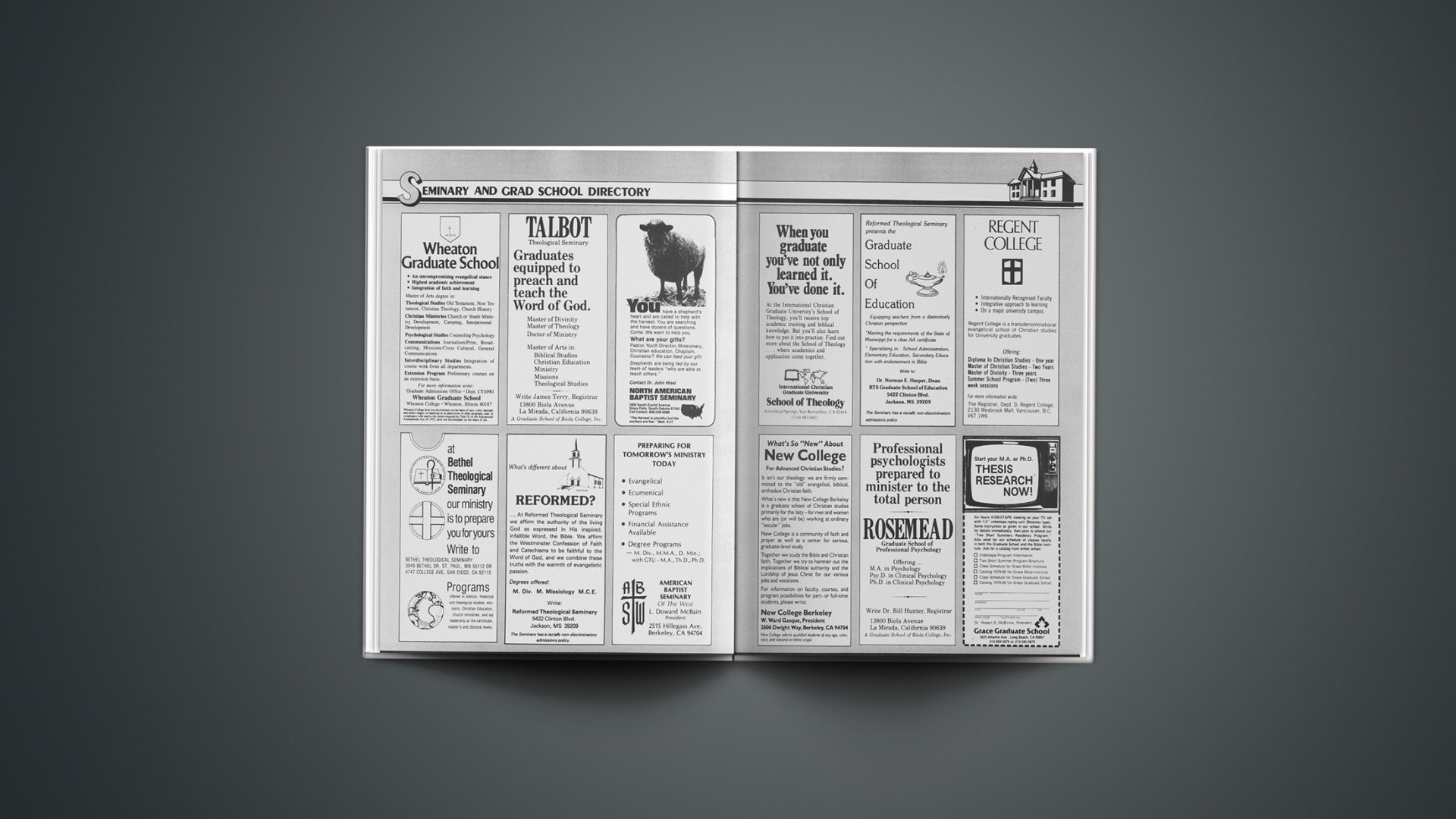From the January 4, 1980, issue of Christianity Today:
There is little need to recount Scripture or to specify chapter and verse to substantiate the proposition that Slow Train is a Christian album. And while there may be inquiries about the surety of his commitment, Slow Train is testimony to Bob Dylan's completion into the Christian faith.
Slow Train Coming is more than a testimony to Bob Dylan's completion into the Christian faith: it is a call into the bars, into the streets, into the world, to repentance, to "the man on the cross … crucified for you. Believe in his power, that's about all you've got to do!" Bob, Jerry Wexler, and Barry Beckett have taken outreach and made it happen in the raw musical vernacular of the roadhouse.
Bob Dylan's credentials are impeccable. Who continually encouraged us to find the truth for ourselves, "Not to follow leaders" (not even himself,.in '"It Ain't Me, Babe")? Who suspected the status quo. the cool, the compromising ("Don't know which is worse, doin' your own thing or just bein' cool")? Who warned the complacent that the "times are a'changing," or cried for the realization of a mutual hope "blowin' in the wind"? Who painfully reexamined his talents and asked, "For whom does this prosper?" so that we might be strengthened in our own hope/thirst for righteousness'?
Not only as edification for the body, "Gotta Serve Somebody" must touch any listener just because it identifies so many of us: our jobs, our traits, our likes, our dislikes. How clearly in this context do we begin to see the single choice available at the bottom line: you cannot serve two masters.
As the blind lead the blind, the political activist has misread the reference to sheiks controlling America's power in Slow Train as a conservative political posture; it is, in fact, an accurate portrayal of the larger picture of world greed and man's subsequent dependence upon its luxuries and niceties as though they were life itself. Remember the line from Pogo: "We have met the enemy and he is us"? This is the ultimate war—the extension of our own battle for control in a situation that has been given to us. A man named Adam and a woman named Eve ate of the Tree of the Knowledge of Good and Evil and at once became "self-conscious," and hid from God. That seed of discontent and guilt has been passed down through the centuries and extruded through into defensive postures that bear no relation to turning the other cheek.
Juxtaposing seemingly unrelated characters and situations, Bob historically has spoken to us of a larger pursuit—a game bigger than local politics or the one-night stand. His John Wesley Harding album marked an adventurous step into the spiritual realm. And most Dylan aficionados are agreed that "My Back Pages" was the most revealing track from Another Side of Bob Dylan. It prophesied his dissatisfaction with himself and with goals that suddenly seemed too obvious and short-sighted. His search wound its way through his albums with occasional discoveries—like love, as revealed in a personal relationship.
Scriptural references were commonplace in Dylan songs, mostly Old Testament images. The allusions were rather strong, and there was no denying the power and authority of lines like "the first will be last," in "The Times They Are A'Changing."
Our Father is leading this musician into areas that are unreachable by the pastel-suited, bouffant-haired, highly stylized `"gospel singer." No one can fully recognize the diversity of gifts or talents within the body of Christ. Bob's new album is a special success: not only for him personally, as God will contrive to work through him as a person; but also musically, as it reaches for the shadows. It beseeches a decision from the hardest hearted, the one who is hardest to find, the outlaw—that one who never committed himself for fear of being hurt. It is an inspiration to all brothers and sisters. Remain in your station.
Musician Noel Paul Stookey is best known as Paul of Peter, Paul, and Mary, whose personal spiritual odyssey was described in Christianity Today's issue of May 19, 1978.
Copyright © 2004 Christianity Today. Click for reprint information.
Related Elsewhere
Christianity Today's other articles on Bob Dylan include:
Watered-Down Love | Bob Dylan encountered Jesus in 1978, and that light has not entirely faded as he turns 60. By Steve Turner (May 24, 2001)
Bob Dylan: Still Blowin' in the Wind | Christianity Today reviews Dylan's work before the singer's conversion to Christianity. By Daniel J. Evearitt (Dec. 3, 1976)
Not Buying into the Subculture | Slow Train Coming reveals that Bob Dylan's quest for answers has been satisfied. By David Singer (Jan. 4, 1980)
Has Born-again Bob Dylan Returned to Judaism? | The singer's response to an Olympics ministry opportunity might settle the matter once for all. (Jan. 13, 1984)
Noel Paul Stookey's page offers information about the artist's touring schedule, recordings, and other projects.










